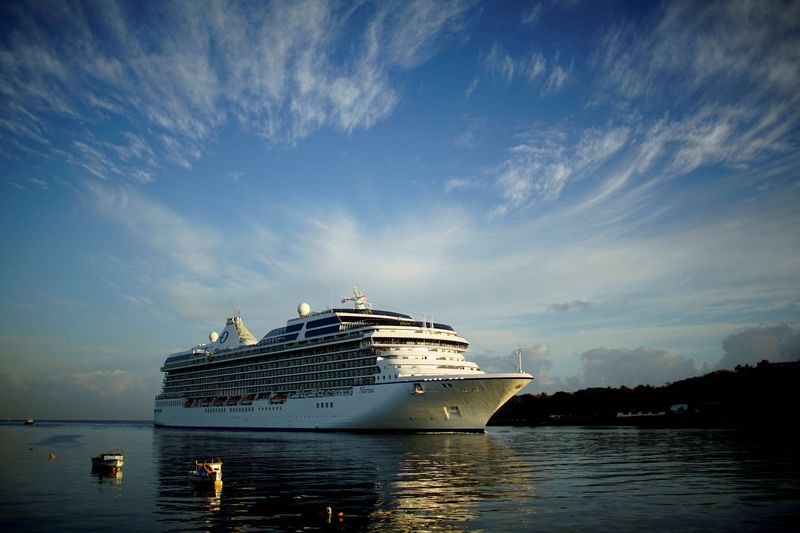By Praveen Paramasivam
(Reuters) - Andrea Mather's plans for a long-awaited summer cruise around the Hawaiian islands with her financial analyst husband unraveled after her booking with Norwegian Cruise Line (NYSE:NCLH)'s Pride of America was canceled due to a staffing shortage.
It was the second time this year that the 55-year-old homemaker's plan to go on a cruise was scuppered.
The cruise industry is sailing in choppy waters yet again as it has to deal with a storm of labor problems, red-hot inflation and recessionary threat, after barely steadying itself from the blows of an 18-month shutdown due to the pandemic.
Wall Street analysts have already cut their 2022 revenue estimates for cruise operators by 5%, on average, since the beginning of the second quarter.
"(The labor shortage) couldn't come at a worse time because the cruise industry is finally starting to see recovery from being the worst impacted industry by COVID," said Jim Corridore, a travel and leisure analyst at data analytics firm Similarweb (NYSE:SMWB).
A typical cruise liner is like a mini city on high seas, where hundreds of people work in shifts to ensure its smooth sailing, while catering to its customers' various demands and needs.
The industry employs about 250,000 workers onboard from over 100 countries and their jobs range from being a ship's captain to a cocktail mixer, according to industry trade body Cruise Lines International Association (CLIA).
However, pandemic-related visa restrictions on travel in many countries and a general preference for flexible working hours have hit the industry's ability to boost staffing to cater to a boom in travel and leisure activities.
That has forced Carnival (NYSE:CCL) Corp to make certain tweaks to the services it offers, such as reducing the operating hours of restaurants and implementing occupancy constraints on certain voyages.
Norwegian Cruise Line has canceled bookings on its U.S.-flagged Pride of America ship, while Royal Caribbean (NYSE:RCL) Group has also been a subject of complaints from passengers who have taken to online message board platform Reddit to flag the poor standard of service on its cruises.
"It is hard to describe overall service on cruises right now as exceptional just because they are so understaffed," said Jessalynn Strauss, a university professor who has been on 17 Royal Caribbean cruises since the restart.
Royal Caribbean did not respond to a request for comment.
INFLATION FOILS SUMMER HOLIDAYS
Tight labor market is not the only headache for cruise companies looking to cash in on pent-up demand from hungry travelers. Higher fuel prices and surging inflation are also threatening to derail any recovery.
The decades-high inflation is particularly hurting America's retired elderly, who happen to be among the cruise industry's main demographics.
M Science analyst Michael Erstad said cash-strapped consumers might turn to more affordable ways to unwind, including visiting theme parks and amusement parks.
(Graphic: U.S. retail sales of cruises slumped due to COVID: https://graphics.reuters.com/USA-CRUISES/jnpwedbrepw/chart_eikon.jpg)
Cruise operators, however, are still confident about the industry's recovery in the longer term, although the strength of their summer sailing season, which typically accounts for a big chunk of their operating income, is still under a cloud.

The industry's contribution to the global economy more than halved to $63.4 billion in 2020 due to the pandemic, according to CLIA, and if the current problems persist it will be hard for the sector to bounce back from those levels.
For now though, Mather is still hoping to cruise around the Hawaiian islands and has rebooked a trip for next year.